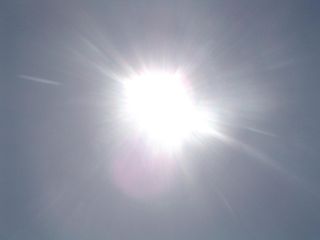Today is an exciting day for climatologists everywhere, because a climatologist has won the Nobel Prize in physics, along with two other scientists that study complex natural systems. You might not think that was very exciting, but that’s because you don’t know the history of how meteorologists and atmospheric scientists were blocked from getting Nobel prizes for years, and many of the giants in 20th century science were not recognized for their seminal work on atmospheric dynamics, chaos, and computing. This is the first time that a climate scientist has ever been awarded the Nobel in Physics.
According to the New York Times, “Three scientists received the Nobel Prize in Physics on Tuesday for work that is essential to understanding how the Earth’s climate is changing, pinpointing the effect of human behavior on those changes and ultimately predicting the impact of global warming. The winners were Syukuro Manabe of Princeton University, Klaus Hasselmann of the Max Planck Institute for Meteorology in Hamburg, Germany, and Giorgio Parisi of the Sapienza University of Rome.”
Here is a list of other famous meteorologists that were passed over for the Nobel Prize because they were not physicists:
Vilhelm Bjerknes (leader of the Bergen School of Meteorology that created modern meteorology in an attic in his house; creator of the circulation theorem for a baroclinic fluid).
Lewis Fry Richardson (pioneer of numerical analysis, finite different solutions of partial differential equations, turbulence research, and numerical weather prediction).
Carl-Gustaf Rossby (discoverer of Rossby waves, present in all rotating atmospheres and fluids from Earth to Mars to stars).
Jacob Bjerknes (as a teenager, co-discoverer of warm and cold fronts; as a senior scientist, the first scientist to synthesize and coalesce different observations and theories into a coherent understanding of El Nino and its significance in climate).
Jule Charney (almost single-handedly the instigator of meteorology’s equivalent of a quantum revolution, creating the first consistent approximation of the Navier-Stokes equations combined with Conservation of Mass and Energy that allowed both analytic qualitative and quantitative numerical solutions for 3D motion in an atmosphere, solving the baroclinic instability problem that explains why planetary atmospheres exhibit growing low-pressure systems, co-discoverer of the vertical propagation of Rossby waves, etc.).
Edward Lorenz (fountainhead of modern chaos theory; visionary advocate of ensemble weather forecasting three decades before it was feasible by computers; quantifier of the Earth’s momentum budget; etc.).
These are some of the atmospheric scientists who never got a Nobel Prize in Physics. We know from historical records that Vilhelm Bjerknes was nominated repeatedly. One meteorologist, Paul Crutzen, won a Nobel for his work on ozone loss… but it was the Nobel in Chemistry.
You can read more at Forbes.com.
